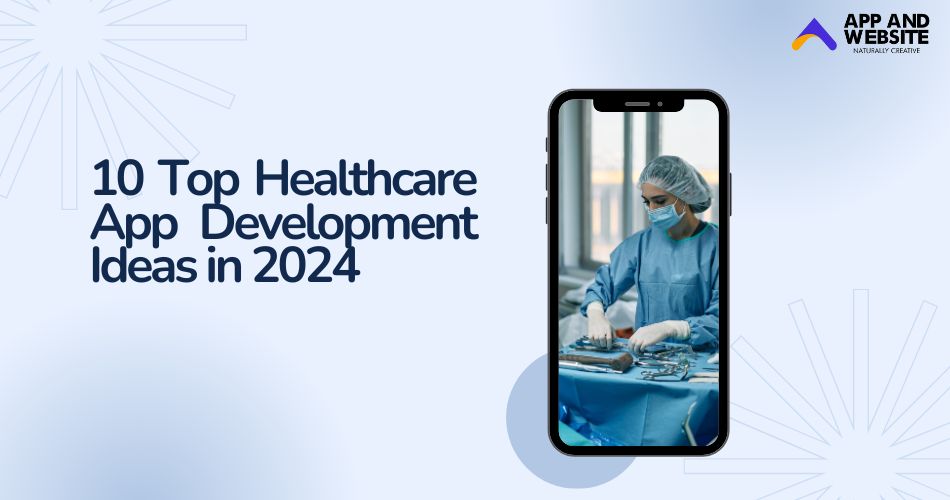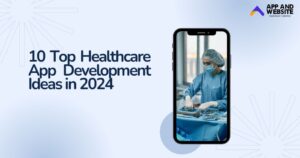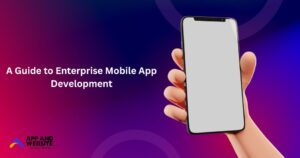Investing in a healthcare app is a major move toward social transformation that will have a huge impact on the digital era. Nowadays, many apps allow patients and doctors to communicate and consult from the comfort of their own homes. Digital patient engagement is now an industry worth more than AUD 300 billion, and it is expected to expand by more than 18% per year until 2032. Although the healthcare experience is improving for patients, it continues to lag behind other consumer-focused businesses. The healthcare scene is fast changing, due to advances in technology and rising demand for accessible, efficient, and customized medical services. As there are various sector within the healthcare and with more emerging technologies this sector has also become more and more polished. There are many applications that has been evolving for instances fitness and wellness, daily workout app, tracking diets, menstrual cycle tracking, book an appointment app, mindfulness app etc.
Healthcare apps have emerged as powerful tools that not only enhance the patient experience but also streamline medical practice operations. This article explores ten innovative healthcare app development ideas that are shaping the future of healthcare delivery.
Why Healthcare Apps Are Crucial For Modern Medical Practice And Patient Care?
Healthcare apps play important role in modern medical practice and patient care by bridging the gap between healthcare providers and patients. The modern technical app has contributed in improving accessibility, efficiency, and quality of care significantly. These apps enable remote consultations, real-time monitoring of health metrics, medication management, mental health support, fitness tracking, chronic disease management, and more. These apps greatly improve accessibility by enabling for remote consultations that connect patients with healthcare experts from anywhere, which is especially beneficial to individuals living in rural or underserved areas. They increase efficiency by streamlining procedures like appointment scheduling and electronic health record maintenance, allowing healthcare providers to focus on patient care. Real-time monitoring of health parameters, medication management, and mental health assistance are all important components that lead to timely interventions and improved health management.
Healthcare apps use mobile technology to help patients take charge of their health and communicate more effectively with their providers. They facilitate access to medical services, enhance adherence to treatment protocols through reminders, and encourage healthy lives with fitness tracking technologies. These apps provide specific tools for chronic illness management, resulting in better healthcare outcomes and lower healthcare expenditures by reducing unnecessary hospital visits. Overall, healthcare apps improve patient happiness by providing customized assistance and involving patients in their own health management, making them vital in today’s healthcare setting.
Top Healthcare App Development Ideas
1. Telemedicine Apps
Telemedicine apps offer virtual consultations between patients and healthcare providers, radically changing access to medical care. These apps enable users to arrange and participate in video or audio calls with doctors, receive diagnoses, and obtain prescriptions without the need for in-person visits. Appointment scheduling, encrypted messaging, electronic prescriptions, and EHR integration are some of the key features. Advanced telemedicine apps may also include AI-powered symptom checks, multi-party conferencing for consultations with various physicians, and capabilities for sharing photos or test results during the session.
The benefits of telemedicine apps are numerous. They increase access to healthcare for people living in distant or underdeveloped areas with few medical facilities, ensuring that everyone receives timely care regardless of location. These apps decrease the need for travel, saving time and money for both patients and healthcare providers. They can prevent minor problems from deteriorating by allowing for prompt medical action. Telemedicine apps also help to reduce healthcare expenses by minimizing unnecessary hospitalizations, emergency room visits, and readmissions. They offer a handy way to schedule follow-up appointments, manage chronic diseases, and seek mental health therapy. Telemedicine apps improve patient satisfaction by enabling flexible, on-demand access to healthcare services, integrating hectic schedules, and giving a more comfortable option to in-person appointments.
2. Personal Health Record (PHR) Apps
Personal Health Record (PHR) apps provide individuals with an effective and safe way to manage their health information. These apps function as a comprehensive repository for users to save, access, and update their medical records, which include critical information such as lab results, medication lists, vaccination history, allergies, and doctor’s comments. PHR apps’ key features include seamless data input from a variety of sources, including hospitals, clinics, pharmacies, and wearable devices, allowing users to create a comprehensive and accurate health profile. The emphasis on secure data storage and privacy safeguards guarantees that sensitive medical information is preserved, giving users faith and confidence in the protection of their health data.
The advantages of PHR apps stretch beyond convenience; they provide individuals more control over their health information and improve interactions with healthcare providers. Users who have simple access to their health records can make educated decisions about their care, track their health progression over time, and maintain continuity of care across several healthcare settings. Furthermore, PHR apps support more coordinated and informed care by allowing the seamless sharing of health records with authorized healthcare practitioners, resulting in better treatment outcomes, fewer medical errors, and a more personalized healthcare experience tailored to individual needs.
3. Medication Management Apps
Medication management apps are invaluable tools for individuals to effectively track and manage their medication intake. These apps provide a centralized platform where users can input their medication schedules, dosage information, and any specific instructions from healthcare providers. Key features of medication management apps include medication reminders, pill identification tools, refill notifications, and medication interaction checkers. Users can set personalized reminders for each medication dose, helping them stay on track with their treatment plans and avoid missed doses or double dosing.
One of the significant benefits of medication management apps is improved medication adherence. By receiving timely reminders and having easy access to their medication schedules, users are more likely to adhere to their prescribed treatment regimens, leading to better health outcomes. These apps also have pill identification capabilities, which allow users to confirm their pills and minimize confusion, particularly while taking numerous drugs. Refill notifications assist consumers keep organized by reminding them when it’s time to refill their prescriptions, ensuring that they have continuous access to pharmaceuticals. Furthermore, medication management applications frequently contain medication interaction checkers, which examine probable drug interactions based on the user’s prescription history. This feature helps users and healthcare providers identify and mitigate any risks associated with combining multiple medications. Overall, medication management apps promote safer and more efficient medication use, enhance patient empowerment, and contribute to better medication adherence, ultimately improving overall health and well-being.
4. Mental Health Apps
Mental health apps are transforming devices for emotional well-being, providing users with a diverse set of resources and help for dealing with mental health issues. These apps offer users an easy and accessible platform for engaging in self-care practices, tracking their emotional states, and accessing guided stress-reduction and relaxation exercises. Key elements, such as mood monitoring tools, enable users to track their mental health progress over time, discover triggers, and get insights into their emotional patterns, developing better self-awareness and empowerment in managing their mental health.
Furthermore, mental health applications frequently use evidence-based treatments such as cognitive behavioral therapy (CBT) exercises, mindfulness practices, and guided meditation sessions. These tools provide users with useful ways for overcoming negative thought patterns, strengthening coping abilities, and increasing resilience in the face of stress. Furthermore, having access to mental health resources, support networks, and instructional information within these applications encourages users to seek treatment, connect with others going through similar experiences, and build a supportive community around mental health awareness and activism. Overall, mental health apps serve an important role in encouraging mental wellness, providing customized assistance, and allowing people to prioritize and nurture their emotional wellbeing.
5. Fitness and Wellness Apps
Fitness and wellness applications have transformed how people approach their health goals, providing a wide range of tools and information to help them live a balanced and active lifestyle. These apps address individual needs by offering individualized fitness routines, nutritional advice, and activity tracking capabilities. Users can choose from a variety of routines, including cardio, strength training, and yoga, all per to their fitness level and interests. Activity monitoring features assess progress and provide real-time feedback, motivating users to stick to their workout programs. Nutritional advice tools assist users in making informed eating decisions, tracking calorie intake, and maintaining a healthy nutritional balance, all of which contribute to overall well-being.
In addition, fitness and wellness apps promote overall well-being by including mindfulness activities, meditation sessions, and stress management approaches on their platforms. These qualities encourage consumers to prioritize mental health alongside physical training, promoting an overall approach to wellness. Community support in these apps creates a sense of belonging and accountability by allowing users to interact with others, share achievements, and participate in challenges together. Finally, fitness and wellness applications enable people to take proactive measures toward a healthier lifestyle, which improves both physical vitality and mental resilience.
6. Chronic Disease Management Apps
Chronic disease management applications are lifelines for those dealing with long-term health concerns, offering a comprehensive arsenal for self-care and disease management. These apps improve medication adherence by providing personalized reminders, tracking medicine usage, and alerting users to prescription renewals. They also provide users with health data tracking features, letting them to monitor crucial metrics such as blood glucose levels, blood pressure, and symptoms associated with their illness. This real-time data collection not only gives people a better awareness of their health status, but it also allows healthcare providers to make informed judgments and react more quickly if necessary.
Chronic disease management apps also foster education and self-empowerment by offering access to valuable resources, including educational materials, lifestyle guidance, and self-management strategies tailored to specific chronic conditions. These apps encourage proactive engagement in managing one’s health, promoting healthy lifestyle modifications, and facilitating communication between patients and healthcare teams. By bridging the gap between patients and providers, chronic disease management apps play a pivotal role in improving treatment adherence, enhancing health outcomes, and ultimately, enhancing the quality of life for individuals living with chronic diseases.
7. Women’s Health Apps
Women’s health apps are useful resources that address women’s special healthcare concerns, including menstrual cycle tracking, pregnancy monitoring, and age management. These applications empower women by offering individualized tools and information about their reproductive and overall health. For example, menstrual cycle monitoring tools enable women to monitor their cycles, track symptoms, and anticipate ovulation, which is very useful for individuals attempting to conceive or manage their menstrual health successfully. Fertility tracking tools provide further help by allowing women to better monitor fertility indications and understand their reproductive patterns, assisting with family planning decisions and increasing the odds of conception.
Women’s health apps extend beyond reproductive health and include a comprehensive approach to well-being. They provide educational information on contraception, sexual health, menopause, breast health, mental health, and other topics, allowing women to make more educated healthcare decisions. Community support elements encourage users to interact, resulting in a helpful environment in which women may share their experiences, seek advice, and access peer support networks. Finally, women’s health apps play an important role in boosting women’s health empowerment, improving health outcomes, and improving overall quality of life for women at all life stages.
8. Elderly Care Apps
Elderly care apps serve as invaluable companions for older adults, offering a range of features tailored to address their unique needs and challenges. These apps play a crucial role in promoting independence, safety, and overall well-being among the aging population. One of the key benefits of elderly care apps is their medication management capabilities, providing timely reminders for medication intake, dosage instructions, and refill alerts. These features help older adults stay organized with their medication routines, reduce the risk of medication errors, and improve adherence to prescribed treatments, ultimately contributing to better health outcomes.
Additionally, Elderly care applications promote social connectivity and mental stimulation, which combats the isolation and loneliness that many elders face. These apps provide venues for video conversations, social networking, games, and community forums, allowing older folks to interact with others, participate in meaningful activities, and share experiences. Elderly care applications improve the quality of life for older individuals by encouraging social engagement and mental health, ensuring they stay active, connected, and supported as they age gracefully.
9. Health and Wellness Marketplaces
Health and wellness marketplaces are growing digitally focused to meeting the different requirements of those seeking a healthier lifestyle. These platforms provide a diverse range of products and services, including exercise equipment, nutritional supplements, wellness programs, virtual fitness classes, and mental health resources. These marketplaces have the advantage of being convenient and accessible, allowing consumers to look through and buy health-related things from the comfort of their own homes. The curated nature of these platforms guarantees that customers have access to high-quality products that have been evaluated by specialists, increasing trust and confidence in their purchases. Personalized suggestions based on user preferences and health goals enhance the shopping experience by allowing for the discovery of relevant offerings tailored to individual needs.
Health and wellness marketplaces are more than just business; they promote a sense of community and support among members. They offer forums, expert advice, and educational information on a variety of health and wellness issues, allowing users to interact, connect, and learn from like-minded people. These marketplaces serve as all-encompassing platforms where people may not only purchase for health-related products, but also access useful resources, seek advice, and embark on their wellness journeys with knowledge and motivation. Overall, health and wellness marketplaces play an important role in establishing a healthy society and empowering people to make educated health decisions.
10. AI-powered Diagnostic Apps
AI-powered diagnostic applications are transforming healthcare by using artificial intelligence and machine learning algorithms to improve the diagnosis, monitoring, and management of a wide range of health issues. These apps employ user-inputted symptoms, medical history, and health data to provide individualized insights and recommendations, providing levels of precision and efficiency that traditional diagnostic approaches may lack. Symptom evaluation, risk prediction, and health tracking are key aspects that allow users to proactively monitor their health condition, detect potential health hazards, and respond quickly to any sudden problems.
One of the key benefits of AI-powered diagnostic apps is that they help to democratize healthcare. These apps offer tailored health assessments and suggestions without requiring in-person medical appointments, making healthcare more accessible and inexpensive. This not only lowers obstacles to healthcare access, but also encourages early detection and intervention, which leads to better health outcomes. The usage of virtual consultations or AI-powered chatbots improves accessibility by offering users with on-demand medical advice, assistance, and support regardless of location or time constraints. Overall, AI-powered diagnostic applications are a huge leap in healthcare technology, allowing users to take charge of their health and well-being by providing personalized, efficient, and accessible diagnostic solutions.
How Can App and Website LLC Help To Develop Healthcare App?
App and Website LLC brings a wealth of experience to the table, specializing in building revolutionary healthcare apps that improve patient care and streamline medical procedures. Our team of seasoned developers, designers, and healthcare specialists works directly with clients to create custom solutions that are suited to their individual needs and goals. We leverage cutting-edge technology such as artificial intelligence, machine learning, and data analytics to create powerful and user-friendly healthcare apps that not only increase efficiency but also improve patient outcomes and stimulate healthcare innovation.
We provide services across the development lifecycle, from idea and design to execution and deployment. We prioritize compliance with industry norms and standards, such as HIPAA, to ensure maximum data security and patient privacy. With our extensive experience in healthcare app development, we enable clients to provide outstanding healthcare experiences, improve workflow efficiency, and remain ahead of the ever-changing healthcare industry. Partnering with App and Website LLC ensures a transformative path to revolutionize healthcare delivery.
Conclusion
Finally, healthcare apps are essential in modern medical practice, considerably boosting accessibility, efficiency, and overall quality of service. These apps provide personalized and simple solutions for both patients and healthcare practitioners, ranging from telemedicine apps that allow for remote consultations to AI-powered diagnostic tools that help with early detection. Health and wellness marketplaces offer comprehensive platforms for overall well-being, whilst AI-powered diagnostic apps transform healthcare delivery by providing rapid and precise evaluations.
Companies like App and Website LLC are at the forefront of healthcare app development, fostering innovation and empowering people to take charge of their health in the digital era. Contact us to learn more about the revolutionary power of healthcare applications and how they may revolutionize your healthcare services. Let’s work together to develop cutting-edge solutions that improve patient care, streamline workflows, and lead to better health outcomes.






